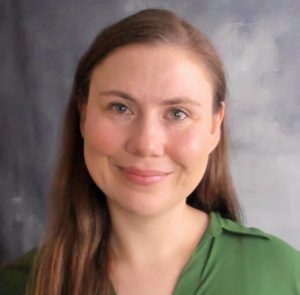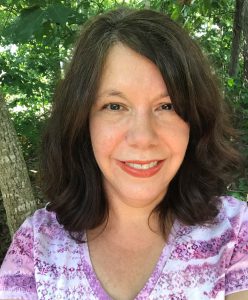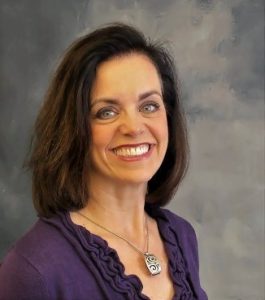Still Lost in Transition? A Fresh Look at Life After Cancer
Posted on byThe transition from active cancer treatment to after-treatment care can be confusing—for both cancer survivors and their health care providers.
In 2006, a report called From Cancer Patient to Cancer Survivor: Lost in Transition was published by the National Academies of Sciences, Engineering, and Medicine (NASEM). This influential report helped raise awareness about the medical, functional, and psychosocial consequences of cancer and its treatment.

In a recently published paper, three scientists in CDC’s Division of Cancer Prevention and Control (DCPC) took a fresh look at the challenges faced by new cancer survivors as they learn to adapt to life after a cancer diagnosis. They collected stories from cancer survivors, health care providers, and programs funded by DCPC’s National Comprehensive Cancer Control Program (NCCCP). The goal was to identify key areas where survivor resources could be improved.
“Hearing from these diverse audiences helped our team prioritize the next steps for DCPC’s cancer survivor work,” said co-author and evaluation fellow Leslie Ross, MPH, CHES. “It also validated the areas where public health practitioners are best suited to address the complex health and mental health needs of cancer survivors.” Ross’s co-authors on the study were epidemiologist Julie Townsend, MS, and health scientist Elizabeth Rohan, PhD, MSW.
Cancer Survivors Need Help Navigating the Health System
The authors used surveys, focus groups, and individual interviews to collect information from cancer survivors and cancer care providers. NCCCP helped recruit study participants from all 50 states and the District of Columbia, as well as from several tribal organizations, US territories, and freely associated states.
Participants shared their unique perspectives on what cancer survivors need and how to reach survivors to make sure they get what they need. For example, participants noted that survivors and their caregivers need information about:
- How to navigate the health system.
- How to live a healthy lifestyle.
- Where to find psychosocial support and resources.
Cancer survivors overwhelmingly said they found the transition from cancer treatment back to primary care confusing and that they needed help navigating the health system. One survivor said, “One point that was really breathtaking for me was when my oncologist said, ‘I don’t need to see you anymore.’ I’m going, ‘What do you mean? You’re my lifeline!’”
The study noted that increased access to patient navigation services and health care provider resources would help cancer survivors as their needs change.
Cancer Survivors Need Resources to Help Them Live Healthier Lives

Cancer survivors also wanted tips on how to incorporate healthy eating, physical activity, and cancer screening into their lives, as well as resources tailored to their unique challenges. In addition to information, survivors said they needed more access to affordable healthy food choices and safe places to be physically active.
“There are so many people that, whether they have cancer or not, they don’t eat healthy diets,” said one cancer survivor. “A lot of people, they’re not feeling too whippy [energetic], or they’re depressed… and so they eat prepared food and stuff out of a can. That’s hard to address.”
Grief, depression, and feelings of anxiety are common among cancer survivors. Study participants said they need resources to address these problems, as well as information on how to cope with changes in their bodies, sexual function, and personal relationships.
As one survivor explained it, “How is it that I structure my life relationally as a female, a mom, a wife, a grandma? All of my roles have just been up in the air, and nobody knows what to do with me. I can’t do the things that I used to do…The relational quality of life is just left out of there.”
Health Care Providers Can Help by Coordinating Care

In their interviews with health care providers, the authors found that primary care providers often don’t know what their role should be in terms of providing care for their patients once active cancer treatment has ended. The study identified a need for better coordination of care between providers to promote a team-based approach.
“One health care provider we spoke with mentioned a common misconception among primary care providers that cancer survivor care was primarily the responsibility of the oncologist,” said Ross. “Our study participants proposed several solutions—including clear communication and collaboration between primary care, oncology, and other specialists the patient may be seeing, including sharing information on cancer treatment history and the potential for long-term side effects.”
Townsend added that, “Our findings also revealed a need to focus on dissemination of resources for cancer survivors. We encourage NCCCP awardees to share and use resources such as the e-Learning series and survivor care guidelines within their partner networks and to implement interventions in the health care setting.”
DCPC Works to Meet the Needs of Cancer Survivors
Another common topic that emerged during this study was the importance of making data about people, not numbers. When CDC researchers go beyond the data and hear from individuals about their actual lived experiences, DCPC can better meet the needs of cancer survivors and their families.
“There is no substitute for asking detailed questions to gain a deeper understanding of the struggles—and the strengths—of cancer survivors,” said Rohan. “We need to make sure our efforts at least have the potential for making a meaningful difference in cancer survivors’ lives—or else why are we doing this work?”
Posted on by

